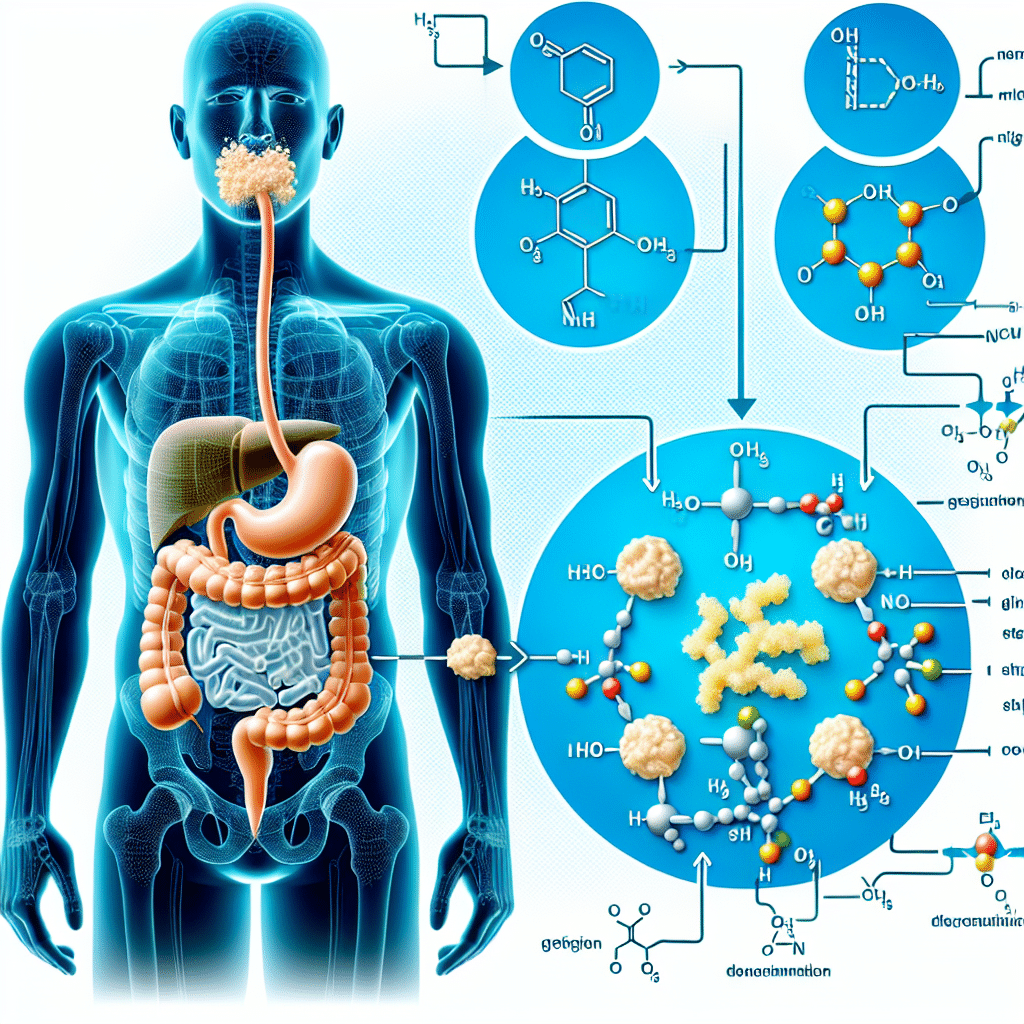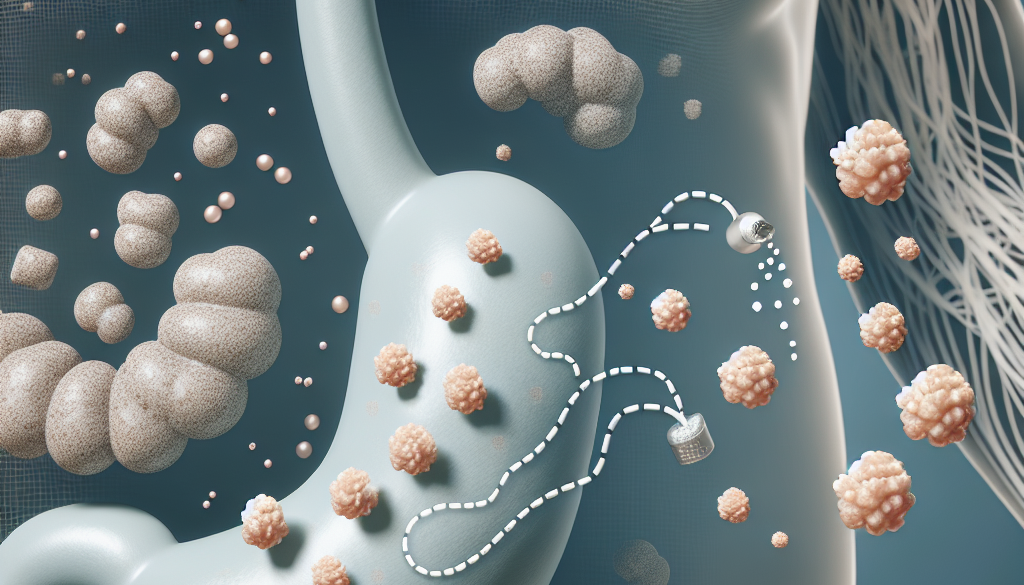Why Does Pea Protein Make Me Gassy? Deep dive
Table of Contents
- Pea Protein and Digestive Discomfort: Unraveling the Gassy Mystery
- Understanding Pea Protein
- The Culprits Behind the Gas
- Fiber Content
- Complex Carbohydrates
- Individual Digestive Sensitivities
- Strategies to Reduce Gassiness
- Gradual Introduction
- Enzyme Supplements
- Probiotics
- Hydration
- Proper Preparation
- Pea Protein in Practice: Real-World Examples
- Scientific Research and Statistics
- Conclusion: Embracing Pea Protein with Less Discomfort
- Discover ETprotein’s High-Quality Protein Products
Pea Protein and Digestive Discomfort: Unraveling the Gassy Mystery

Pea protein has emerged as a popular plant-based alternative to animal-derived proteins, offering a wealth of nutritional benefits. However, some individuals find that consuming pea protein leads to an uncomfortable side effect: increased gassiness. This article delves into the reasons behind this digestive response and offers insights into how you can enjoy pea protein without the unwanted bloating and gas.
Understanding Pea Protein
Pea protein is derived from yellow split peas and is favored for its high protein content, hypoallergenic properties, and sustainability. It’s a complete protein, containing all nine essential amino acids, which makes it an excellent choice for vegetarians, vegans, and those looking to reduce their meat consumption.
The Culprits Behind the Gas
Several factors contribute to the gassiness associated with pea protein consumption. Understanding these can help you mitigate the effects and enjoy the benefits of this plant-based protein.
Fiber Content
Pea protein contains a significant amount of dietary fiber. While fiber is essential for a healthy digestive system, it can also be fermented by bacteria in the large intestine, leading to the production of gas.
Complex Carbohydrates
Peas, like other legumes, are rich in complex carbohydrates called oligosaccharides, specifically raffinose and stachyose. These sugars are not easily digested by the human body and are instead fermented by gut bacteria, resulting in gas.
Individual Digestive Sensitivities
Some individuals may have a sensitivity to pea protein or may not be accustomed to high-fiber diets, which can exacerbate gassiness. Additionally, those with irritable bowel syndrome (IBS) or other digestive disorders might experience more pronounced symptoms.
Strategies to Reduce Gassiness
Fortunately, there are several strategies you can employ to enjoy pea protein without the discomfort of excess gas.
Gradual Introduction
Introduce pea protein into your diet slowly, allowing your digestive system to adjust to the increased fiber and protein content.
Enzyme Supplements
Consider taking enzyme supplements, such as alpha-galactosidase, which can help break down complex carbohydrates and reduce gas production.
Probiotics
Incorporating probiotics into your diet can improve gut health and may help reduce symptoms of gas when consuming pea protein.
Hydration
Drinking plenty of water can aid digestion and help move fiber through your system more efficiently, potentially reducing gas.
Proper Preparation
If you’re using whole peas or pea flour, proper preparation, such as soaking and rinsing, can help remove some of the oligosaccharides that contribute to gassiness.
Pea Protein in Practice: Real-World Examples
Many individuals have successfully integrated pea protein into their diets by following the strategies outlined above. For instance, a gradual shift from whey to pea protein over several weeks can help minimize digestive issues. Additionally, anecdotal evidence suggests that blending pea protein with other foods, rather than consuming it in isolation, can also alleviate symptoms.
Scientific Research and Statistics
Research on pea protein and its effects on digestion is ongoing. Studies have shown that while pea protein can cause gassiness in some individuals, its overall benefits to health and digestion are significant. For example, a study published in the Journal of Nutrition found that pea protein was just as effective as dairy-based proteins in promoting muscle growth, without the added digestive distress that lactose can cause in lactose-intolerant individuals.
Conclusion: Embracing Pea Protein with Less Discomfort
Pea protein is a nutritious and sustainable protein source that can be a valuable part of a balanced diet. While it may cause gassiness in some individuals, understanding the reasons behind this and implementing strategies to reduce digestive discomfort can help you enjoy the benefits of pea protein without the bloating and gas. By introducing pea protein gradually, considering enzyme supplements, and maintaining good hydration, you can minimize its gassy effects and make it a comfortable addition to your dietary regimen.
Discover ETprotein’s High-Quality Protein Products
If you’re looking for top-notch pea protein products, ETprotein is an excellent choice. Their pea protein offerings are characterized by a neutral taste, non-GMO, and allergen-free attributes, ensuring that you get the best quality for your nutritional needs. Whether you’re a distributor, trader, or manufacturer, ETprotein’s extensive range of organic bulk vegan proteins can cater to your industry’s requirements.
About ETprotein:
ETprotein, a reputable protein and L-(+)-Ergothioneine (EGT) Chinese factory manufacturer and supplier, is renowned for producing, stocking, exporting, and delivering the highest quality organic bulk vegan proteins and L-(+)-Ergothioneine. They include Organic rice protein, clear rice protein, pea protein, clear pea protein, watermelon seed protein, pumpkin seed protein, sunflower seed protein, mung bean protein, peanut protein, and L-(+)-Ergothioneine EGT Pharmaceutical grade, L-(+)-Ergothioneine EGT food grade, L-(+)-Ergothioneine EGT cosmetic grade, L-(+)-Ergothioneine EGT reference grade and L-(+)-Ergothioneine EGT standard. Their offerings, characterized by a neutral taste, non-GMO, allergen-free attributes, with L-(+)-Ergothioneine purity over 98%, 99%, cater to a diverse range of industries. They serve nutraceutical, pharmaceutical, cosmeceutical, veterinary, as well as food and beverage finished product distributors, traders, and manufacturers across Europe, USA, Canada, Australia, Thailand, Japan, Korea, Brazil, and Chile, among others.
ETprotein specialization includes exporting and delivering tailor-made protein powder and finished nutritional supplements. Their extensive product range covers sectors like Food and Beverage, Sports Nutrition, Weight Management, Dietary Supplements, Health and Wellness Products, and Infant Formula, ensuring comprehensive solutions to meet all your protein needs.
As a trusted company by leading global food and beverage brands and Fortune 500 companies, ETprotein reinforces China’s reputation in the global arena. For more information or to sample their products, please contact them and email sales(at)ETprotein.com today.














